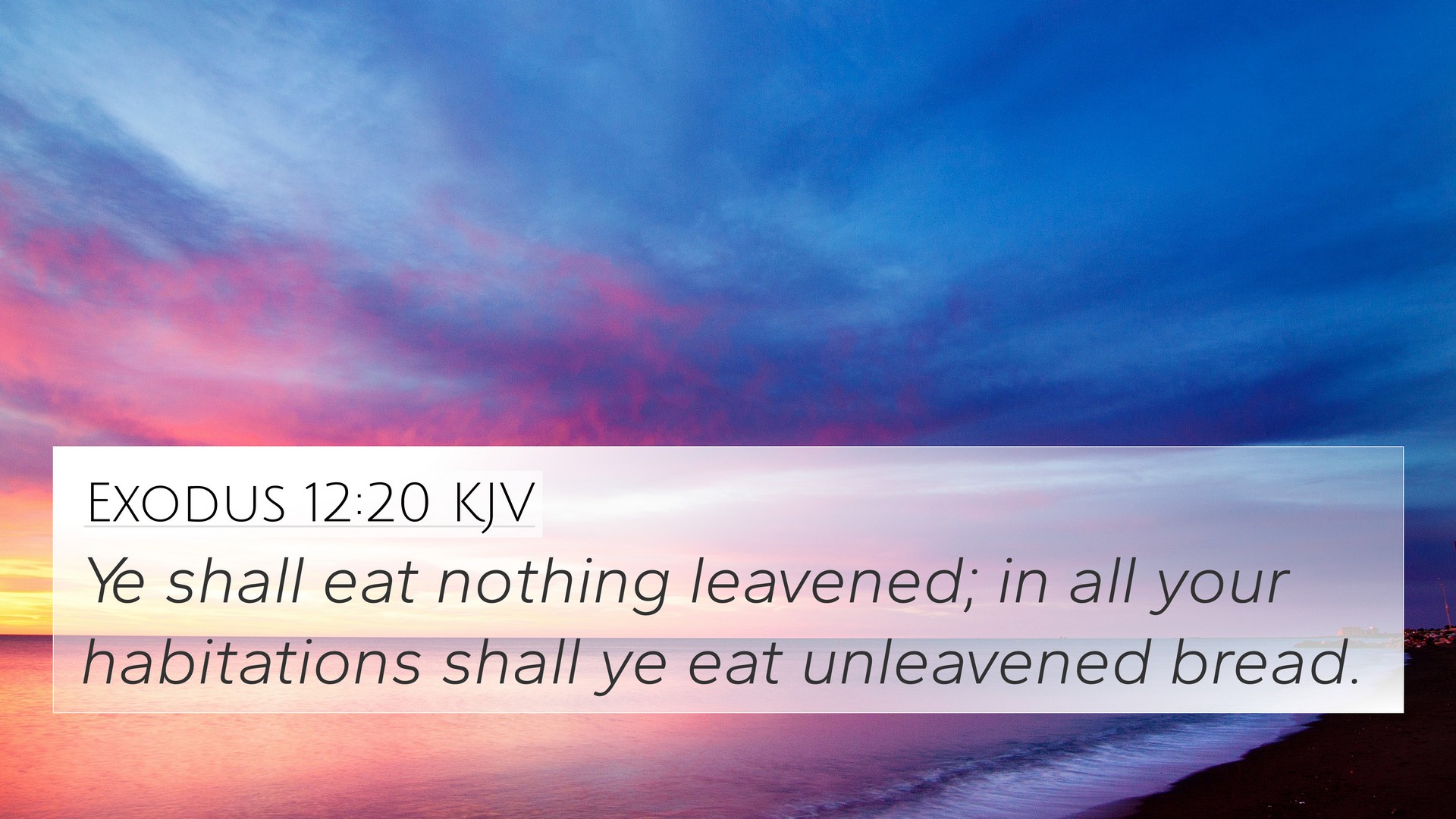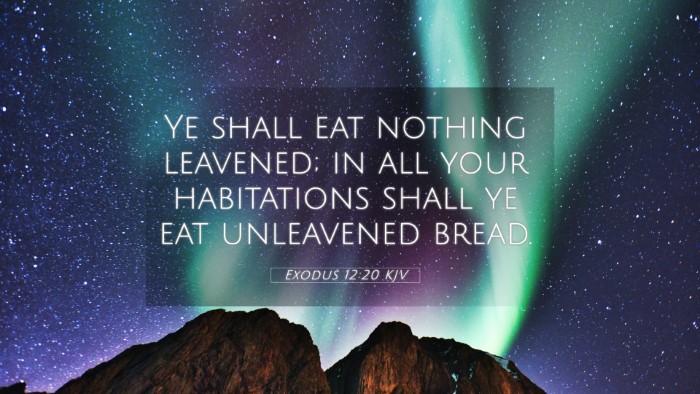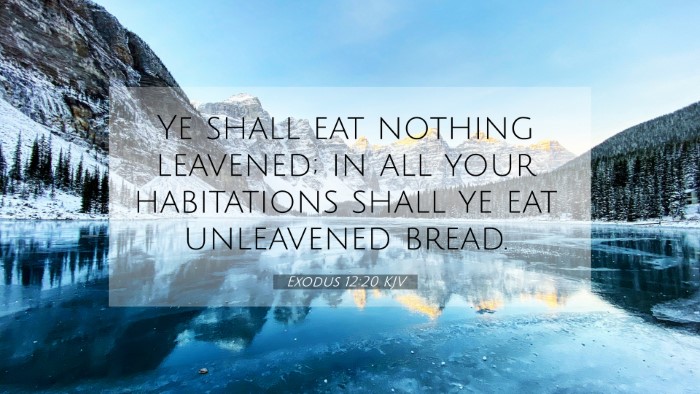Understanding Exodus 12:20
The verse Exodus 12:20 states:
“You shall eat nothing leavened; in all your dwellings you shall eat unleavened bread.”
This directive is part of the instructions for the Passover, a key event in the liberation of the Israelites from Egyptian captivity. Understanding this verse requires looking into the significance of leaven and unleavened bread within the context of the Exodus narrative.
Significance of Unleavened Bread
Unleavened bread symbolizes purity and readiness, as it was eaten in haste during the departure from Egypt. The absence of leaven also reflects the need for the Israelites to separate themselves from the sin and corruption of Egypt.
Commentary Insights
Matthew Henry's Commentary
Matthew Henry emphasizes that the command to eat unleavened bread is a spiritual lesson, signifying a departure from sin and an entry into a new life in covenant with God. He notes that leaven often represents sin in the Scriptures.
Albert Barnes' Commentary
According to Albert Barnes, this verse reflects the urgency and immediacy required in observing the Passover. The directive to avoid leavened bread serves as a reminder of the importance of obedience to God during a pivotal moment in Israel's history.
Adam Clarke's Commentary
Adam Clarke elaborates on the broader implications of this command, linking it to both the physical and spiritual realities. He notes that the unleavened bread represents both the harshness of their oppression and the purity expected in their new life.
Bible Cross-References
This verse connects with various other Scriptures that address themes of purification, obedience, and salvation. Below are some important cross-references:
- 1 Corinthians 5:6-8 - Paul discusses the importance of removing the 'leaven' of malice and wickedness.
- Exodus 13:7 - A reiteration of the command regarding unleavened bread during the Feast of Unleavened Bread.
- Matthew 16:6 - Jesus warns against the leaven of the Pharisees, indicating the perils of false teachings.
- Leviticus 23:6 - Outlines the observance of the Feast of Unleavened Bread as part of the sacred calendar.
- John 6:35 - Jesus describes Himself as the Bread of Life, inviting the faithful to a relationship that transcends dietary laws.
- Galatians 5:9 - Paul speaks of a little leaven leavening the whole lump, warning against sin's pervasive nature.
- Luke 22:1 - The preparation for Passover in the New Testament context, linking Christ's sacrifice to the symbolism of the Passover meal.
Theme: Purification and Consecration
Thematic connections in biblical texts often reveal deeper insights into the nature of God's covenant with His people. By studying Exodus 12:20 alongside related verses, believers can grasp the significance of spiritual purification. The act of consuming unleavened bread becomes a metaphor for living a life set apart for God, echoing throughout both Old and New Testaments.
Tools for Cross-Referencing
For those looking to explore these connections further, various tools can aid in cross-referencing biblical texts, such as:
- Bible concordance that lists verses by keywords.
- Cross-reference Bible study guides for thematic explorations.
- Studying parallel accounts in the Gospels to identify similarities and contrasts.
- Utilizing Bible chain references for deeper investigations.
Conclusion
Exodus 12:20 serves as a profound reminder of the call to holiness and obedience. This verse, along with its cross-references, underscores the transformation that God desires for His people as they move from bondage to freedom. Engaging with the wider scriptural context enriches our understanding and appreciation of divine covenant and salvation.


